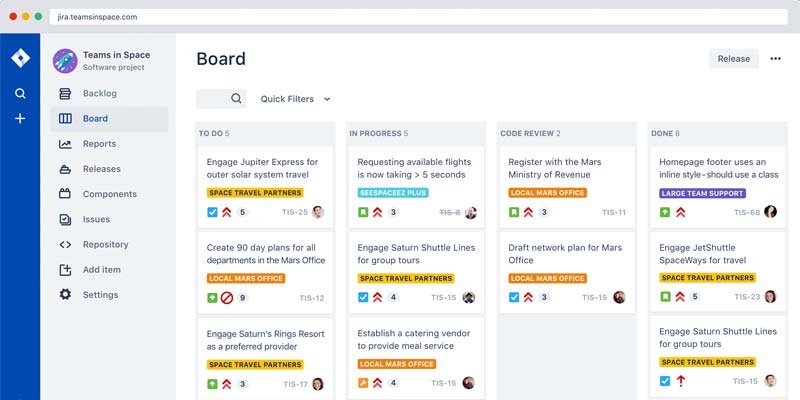Are you wanting to break into the tech industry but come from a non-tech background? I was in the same position 5 years ago. In this article I share my career journey, as well as 5 tips on how to transition into a role in technology.
My career in technology began unexpectedly, when I was offered a Business Analyst role on a huge digital transformation project in the organisation I worked for.
I had previously worked in a technology team but in a non-technical role, and had always dreamed of transitioning to a tech role but didn’t think I had the skills or knowledge. I didn’t know how to code and, didn’t have the faintest clue about the different roles outside of the standard Developer, Architect and Engineer.
Little did I know when my boss gave me the Business Analyst role, he was opening a huge door, and a new career path for me. He also suggested I take a project management course so I could secure a project management role in the future.
My response… “What is a Project Manager?”
My Career Journey
Most people don’t realise there are more roles in tech than being a developer or computer engineer. Project management is one of those roles.
Technical project managers are critical to the conception, development and execution of IT projects. In addition to understanding the content of the project, which can be quite technical, they must also handle all the duties normally ascribed to project managers. For example:
- Define scope
- Planning, scheduling and timeline maintenance
- Managing the budget
- Mitigating issues and risk
- Stakeholder management
- Reporting and Documentation
Becoming an IT Project Manager
The first step to achieving a technical project manager role was undertaking project management training to become a Certified Project Manager. All the while thinking “I still don’t know how to code, so I’m not sure I can be of any value”.
I was a single mum, and had my hands full with a young child, and already in the middle of completing a postgraduate degree in Psychology & Neuroscience. The thought of learning to code and adding another project to my list was simply not feasible.
I decided to jump at the opportunity and after 6 months in the Business Analyst role I was offered the opportunity to lead one of the project streams to develop a complex payments software. I was suddenly responsible for a team of Agile developers in Manila and had to quickly get up to speed.
The project expanded and resulted in me having two new bosses, both of whom were female. Whilst I was set on this new career path by a male, these two women shaped my career journey in tech. They showed me how and why you don’t need to be “techie”, and that you don’t need to code to have a successful career in tech.
To that end, here are my 5 tips on how to transition into a technology role without prior experience.

1. Identify your Transferable Skills
Work out what skills are transferable. Write them down.
It doesn’t matter if you come from a science, fashion, fitness or some other background, you will have transferable skills you can apply in your new tech role. Don’t think your previous roles were a waste of time – trust me, every skill you have developed is transferrable. For example:
Hard Skills
- Platform understanding e.g Microsoft suite, graphic design tools
- Data analysis
- Budgeting
- Resource planning
A number of these are useful to testers, business analysts and scrum masters.
Soft Skills
- Teamwork
- Leadership
- Organisation
- Presentation
- Communication
These are important in any role, not just technology-related jobs.
When you have your list , understand how these skills will help you in your new career in tech.
For example, in my previous role it took (X) months to learn (Y) platform. This demonstrates your ability to up-skill quickly in the relevant technology to get the job done.
Keep this list of transferrable skills handy, as there will be multiple times throughout your career journey where you can leverage it.
2. Create a Glossary
One of the first things I did was make a list of every term or acronym I heard or read to create my own glossary.
Do you think a dev ever tells you what “API” stands for?
Write down the terms. Add When, How and Why they would be used, and an example sentence.
Don’t be afraid to ask questions if you don’t understand something. You’ll feel more empowered, and demonstrate your eagerness to learn the terminology.

3. Understand each Role in your Team
What are they expected to deliver, and when?
Are they a permanent employee, or contractor?
Contracting is popular in many tech companies, and this has its own nuances, depending on where you work.
How long are they on the project for? This question is especially important if you are expected to deliver something together.
What process(es) do they follow, and are they different to yours?
Knowing this information will also help accelerate your understanding of IT projects, what resources specialise in a specific part of the platform, and when they’re required in the project. Identify who can answer your questions. Understand how to navigate and work between different tech teams. What processes apply where, and how to ensure your teams stay productive and on-task.
This may also spark inspiration for your next career move. Understanding the ins and outs of different tech roles will improve your understanding and highlight roles you may be interested in pursuing in your career journey.
4. Understand the Process, and Content
Process
Find out what process(es) your team has, and why?
For example, do they follow Agile or Waterfall project methodology?
Don’t know Agile or Waterfall? Add these to your glossary. Even if you think you’ll never need to know, you will, and it makes for great microwave chat.
Content
What are the tools of the trade?
Understand the hardware and software each person in your team uses, and what the software is used for.
This will vary according to industry. For example, a biotech developer might use some neural imaging software like MATLAB, and have some brain computer interface device. Whilst a data scientist might only need Tableau or Power BI.
Find out what software you need to use, and identify if you need to up-skill. Can you learn on the job, or do you need to complete some form of training?
For example, we used JIRA and Confluence for our project. I initially thought I should do a course, however my team showed me how they used it and I quickly realised I could pick it up easily.

Pro Tip:
If you work for a large company, or in a highly regulated space, clarify your level of access to data and information, compared with your team. If you don’t have the same access, you may feel like you’re going mad if they can see something and you can’t.
Or worse, it can make you look incompetent and create friction within the team, and extra work to resolve it.
Knowing who can approve and facilitate access, quickly, is extremely helpful.
5. Create a Personal Development plan
Making the move to a role in tech, especially if you have zero background on it, will mean a big learning curve. I quickly worked out what I could learn immediately (or needed to), versus what I could develop over time.
This will save you from information overload, and make you more productive and effective.
Get advice from your manager, colleagues and individuals who are in similar roles. They will be able to share their career journey, personal experiences, recommend courses and ultimately help guide you into your dream job in tech.

In summary, don’t be deterred from pursuing a career in tech. If it’s your dream job, then go for it! Learning about the industry, the processes and coding languages can all be learnt on the job, or online. I am a living example of achieving a tech-based role with no prior technology experience. I hope my story has inspired you.


